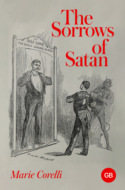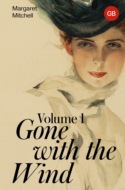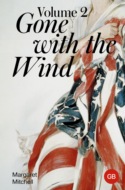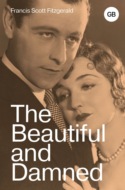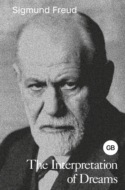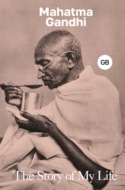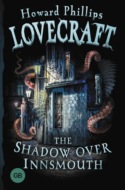Kitabı oku: «The Memoirs of Sherlock Holmes and The Sign of the Four / Записки о Шерлоке Холмсе и Знак четырех», sayfa 2
Chapter III
In Quest of a Solution
It was half-past five before Holmes returned. He was bright, eager, and in excellent spirits, – a mood which in his case alternated with fits of the blackest depression.
“There is no great mystery in this matter,” he said, taking the cup of tea which I had poured out for him. “The facts appear to admit of only one explanation.”
“What! you have solved it already?”
“Well, that would be too much to say. I have discovered a suggestive fact, that is all. It is, however, very suggestive. The details are still to be added. I have just found, on consulting the back files of the Times, that Major Sholto, of Upper Norword, late of the 34th Bombay Infantry, died upon the 28th of April, 1882.”
“I may be very obtuse, Holmes, but I fail to see what this suggests.”
“No? You surprise me. Look at it in this way, then. Captain Morstan disappears. The only person in London whom he could have visited is Major Sholto. Major Sholto denies having heard that he was in London. Four years later Sholto dies. Within a week of his death Captain Morstan's daughter receives a valuable present, which is repeated from year to year, and now culminates in a letter which describes her as a wronged woman. What wrong can it refer to except this deprivation of her father? And why should the presents begin immediately after Sholto's death, unless it is that Sholto's heir knows something of the mystery and desires to make compensation? Have you any alternative theory which will meet the facts?”
“But what a strange compensation! And how strangely made! Why, too, should he write a letter now, rather than six years ago? Again, the letter speaks of giving her justice. What justice can she have? It is too much to suppose that her father is still alive. There is no other injustice in her case that you know of.”
“There are difficulties; there are certainly difficulties,” said Sherlock Holmes, pensively. “But our expedition of to-night will solve them all. Ah, here is a four-wheeler, and Miss Morstan is inside. Are you all ready? Then we had better go down, for it is a little past the hour.”
I picked up my hat and my heaviest stick, but I observed that Holmes took his revolver from his drawer and slipped it into his pocket. It was clear that he thought that our night's work might be a serious one.
Miss Morstan was muffled in a dark cloak, and her sensitive face was composed, but pale. She must have been more than woman if she did not feel some uneasiness at the strange enterprise upon which we were embarking, yet her self-control was perfect, and she readily answered the few additional questions which Sherlock Holmes put to her.
“Major Sholto was a very particular friend of papa's,” she said. “His letters were full of allusions to the major. He and papa were in command of the troops at the Andaman Islands, so they were thrown a great deal together. By the way, a curious paper was found in papa's desk which no one could understand. I don't suppose that it is of the slightest importance, but I thought you might care to see it, so I brought it with me. It is here.”
Holmes unfolded the paper carefully and smoothed it out upon his knee. He then very methodically examined it all over with his double lens.
“It is paper of native Indian manufacture,” he remarked. “It has at some time been pinned to a board. The diagram upon it appears to be a plan of part of a large building with numerous halls, corridors, and passages. At one point is a small cross done in red ink, and above it is '3.37 from left,' in faded pencil-writing. In the left-hand corner is a curious hieroglyphic like four crosses in a line with their arms touching. Beside it is written, in very rough and coarse characters, 'The sign of the four, – Jonathan Small, Mahomet Singh, Abdullah Khan, Dost Akbar.' No, I confess that I do not see how this bears upon the matter. Yet it is evidently a document of importance. It has been kept carefully in a pocket-book; for the one side is as clean as the other.”
“It was in his pocket-book that we found it.”
“Preserve it carefully, then, Miss Morstan, for it may prove to be of use to us. I begin to suspect that this matter may turn out to be much deeper and more subtle than I at first supposed. I must reconsider my ideas.” He leaned back in the cab, and I could see by his drawn brow and his vacant eye that he was thinking intently. Miss Morstan and I chatted in an undertone about our present expedition and its possible outcome, but our companion maintained his impenetrable reserve until the end of our journey.
It was a September evening, and not yet seven o'clock, but the day had been a dreary one, and a dense drizzly fog lay low upon the great city. Mud-coloured clouds drooped sadly over the muddy streets. Down the Strand the lamps were but misty splotches of diffused light which threw a feeble circular glimmer upon the slimy pavement. The yellow glare from the shop-windows streamed out into the steamy, vaporous air, and threw a murky, shifting radiance across the crowded thoroughfare. There was, to my mind, something eerie and ghost-like in the endless procession of faces which flitted across these narrow bars of light, – sad faces and glad, haggard and merry. Like all human kind, they flitted from the gloom into the light, and so back into the gloom once more. I am not subject to impressions, but the dull, heavy evening, with the strange business upon which we were engaged, combined to make me nervous and depressed. I could see from Miss Morstan's manner that she was suffering from the same feeling. Holmes alone could rise superior to petty influences. He held his open note-book upon his knee, and from time to time he jotted down figures and memoranda in the light of his pocket-lantern.
At the Lyceum Theatre the crowds were already thick at the side-entrances. In front a continuous stream of hansoms and four-wheelers were rattling up, discharging their cargoes of shirt-fronted men and beshawled, bediamonded women. We had hardly reached the third pillar, which was our rendezvous, before a small, dark, brisk man in the dress of a coachman accosted us.
“Are you the parties who come with Miss Morstan?” he asked.
“I am Miss Morstan, and these two gentlemen are my friends,” said she.
He bent a pair of wonderfully penetrating and questioning eyes upon us. “You will excuse me, miss,” he said with a certain dogged manner, “but I was to ask you to give me your word that neither of your companions is a police-officer.”
“I give you my word on that,” she answered.
He gave a shrill whistle, on which a street Arab led across a four-wheeler and opened the door. The man who had addressed us mounted to the box, while we took our places inside. We had hardly done so before the driver whipped up his horse, and we plunged away at a furious pace through the foggy streets.
The situation was a curious one. We were driving to an unknown place, on an unknown errand. Yet our invitation was either a complete hoax, – which was an inconceivable hypothesis, – or else we had good reason to think that important issues might hang upon our journey. Miss Morstan's demeanor was as resolute and collected as ever. I endeavored to cheer and amuse her by reminiscences of my adventures in Afghanistan; but, to tell the truth, I was myself so excited at our situation and so curious as to our destination that my stories were slightly involved. To this day she declares that I told her one moving anecdote as to how a musket looked into my tent at the dead of night, and how I fired a double-barrelled tiger cub at it. At first I had some idea as to the direction in which we were driving; but soon, what with our pace, the fog, and my own limited knowledge of London, I lost my bearings, and knew nothing, save that we seemed to be going a very long way. Sherlock Holmes was never at fault, however, and he muttered the names as the cab rattled through squares and in and out by tortuous by-streets.
“Rochester Row,” said he. “Now Vincent Square. Now we come out on the Vauxhall Bridge Road. We are making for the Surrey side, apparently. Yes, I thought so. Now we are on the bridge. You can catch glimpses of the river.”
We did indeed get a fleeting view of a stretch of the Thames with the lamps shining upon the broad, silent water; but our cab dashed on, and was soon involved in a labyrinth of streets upon the other side.
“Wordsworth Road,” said my companion. “Priory Road. Lark Hall Lane. Stockwell Place. Robert Street. Cold Harbor Lane. Our quest does not appear to take us to very fashionable regions.”
We had, indeed, reached a questionable and forbidding neighbourhood. Long lines of dull brick houses were only relieved by the coarse glare and tawdry brilliancy of public houses at the corner. Then came rows of two-storied villas each with a fronting of miniature garden, and then again interminable lines of new staring brick buildings, – the monster tentacles which the giant city was throwing out into the country. At last the cab drew up at the third house in a new terrace. None of the other houses were inhabited, and that at which we stopped was as dark as its neighbours, save for a single glimmer in the kitchen window. On our knocking, however, the door was instantly thrown open by a Hindoo servant clad in a yellow turban, white loose-fitting clothes, and a yellow sash. There was something strangely incongruous in this Oriental figure framed in the commonplace doorway of a third-rate suburban dwelling-house.
“The Sahib awaits you,” said he, and even as he spoke there came a high piping voice from some inner room. “Show them in to me, khitmutgar,” it cried. “Show them straight in to me.”
Chapter IV
The Story of the Bald-Headed Man
We followed the Indian down a sordid and common passage, ill-lit and worse furnished, until he came to a door upon the right, which he threw open. A blaze of yellow light streamed out upon us, and in the centre of the glare there stood a small man with a very high head, a bristle of red hair all round the fringe of it, and a bald, shining scalp which shot out from among it like a mountain-peak from fir-trees. He writhed his hands together as he stood, and his features were in a perpetual jerk, now smiling, now scowling, but never for an instant in repose. Nature had given him a pendulous lip, and a too visible line of yellow and irregular teeth, which he strove feebly to conceal by constantly passing his hand over the lower part of his face. In spite of his obtrusive baldness, he gave the impression of youth. In point of fact he had just turned his thirtieth year.
“Your servant, Miss Morstan,” he kept repeating, in a thin, high voice. “Your servant, gentlemen. Pray step into my little sanctum. A small place, miss, but furnished to my own liking. An oasis of art in the howling desert of South London.”
We were all astonished by the appearance of the apartment into which he invited us. In that sorry house it looked as out of place as a diamond of the first water in a setting of brass. The richest and glossiest of curtains and tapestries draped the walls, looped back here and there to expose some richly-mounted painting or Oriental vase. The carpet was of amber-and-black, so soft and so thick that the foot sank pleasantly into it, as into a bed of moss. Two great tiger-skins thrown athwart it increased the suggestion of Eastern luxury, as did a huge hookah which stood upon a mat in the corner. A lamp in the fashion of a silver dove was hung from an almost invisible golden wire in the centre of the room. As it burned it filled the air with a subtle and aromatic odour.
“Mr. Thaddeus Sholto,” said the little man, still jerking and smiling. “That is my name. You are Miss Morstan, of course. And these gentlemen-”
“This is Mr. Sherlock Holmes, and this is Dr. Watson.”
“A doctor, eh?” cried he, much excited. “Have you your stethoscope? Might I ask you – would you have the kindness? I have grave doubts as to my mitral valve, if you would be so very good. The aortic I may rely upon, but I should value your opinion upon the mitral.”
I listened to his heart, as requested, but was unable to find anything amiss, save indeed that he was in an ecstasy of fear, for he shivered from head to foot. “It appears to be normal,” I said. “You have no cause for uneasiness.”
“You will excuse my anxiety, Miss Morstan,” he remarked, airily. “I am a great sufferer, and I have long had suspicions as to that valve. I am delighted to hear that they are unwarranted. Had your father, Miss Morstan, refrained from throwing a strain upon his heart, he might have been alive now.”
I could have struck the man across the face, so hot was I at this callous and off-hand reference to so delicate a matter. Miss Morstan sat down, and her face grew white to the lips. “I knew in my heart that he was dead,” said she.
“I can give you every information,” said he, “and, what is more, I can do you justice; and I will, too, whatever Brother Bartholomew may say. I am so glad to have your friends here, not only as an escort to you, but also as witnesses to what I am about to do and say. The three of us can show a bold front to Brother Bartholomew. But let us have no outsiders, – no police or officials. We can settle everything satisfactorily among ourselves, without any interference. Nothing would annoy Brother Bartholomew more than any publicity.” He sat down upon a low settee and blinked at us inquiringly with his weak, watery blue eyes.
“For my part,” said Holmes, “whatever you may choose to say will go no further.”
I nodded to show my agreement.
“That is well! That is well!” said he. “May I offer you a glass of Chianti, Miss Morstan? Or of Tokay? I keep no other wines. Shall I open a flask? No? Well, then, I trust that you have no objection to tobacco-smoke, to the mild balsamic odour of the Eastern tobacco. I am a little nervous, and I find my hookah an invaluable sedative.” He applied a taper to the great bowl, and the smoke bubbled merrily through the rose-water. We sat all three in a semi-circle, with our heads advanced, and our chins upon our hands, while the strange, jerky little fellow, with his high, shining head, puffed uneasily in the centre.
“When I first determined to make this communication to you,” said he, “I might have given you my address, but I feared that you might disregard my request and bring unpleasant people with you. I took the liberty, therefore, of making an appointment in such a way that my man Williams might be able to see you first. I have complete confidence in his discretion, and he had orders, if he were dissatisfied, to proceed no further in the matter. You will excuse these precautions, but I am a man of somewhat retiring, and I might even say refined, tastes, and there is nothing more unæsthetic than a policeman. I have a natural shrinking from all forms of rough materialism. I seldom come in contact with the rough crowd. I live, as you see, with some little atmosphere of elegance around me. I may call myself a patron of the arts. It is my weakness. The landscape is a genuine Corot, and, though a connoisseur might perhaps throw a doubt upon that Salvator Rosa, there cannot be the least question about the Bouguereau. I am partial to the modern French school.”
“You will excuse me, Mr. Sholto,” said Miss Morstan, “but I am here at your request to learn something which you desire to tell me. It is very late, and I should desire the interview to be as short as possible.”
“At the best it must take some time,” he answered; “for we shall certainly have to go to Norwood and see Brother Bartholomew. We shall all go and try if we can get the better of Brother Bartholomew. He is very angry with me for taking the course which has seemed right to me. I had quite high words with him last night. You cannot imagine what a terrible fellow he is when he is angry.”
“If we are to go to Norwood it would perhaps be as well to start at once,” I ventured to remark.
He laughed until his ears were quite red. “That would hardly do,” he cried. “I don't know what he would say if I brought you in that sudden way. No, I must prepare you by showing you how we all stand to each other. In the first place, I must tell you that there are several points in the story of which I am myself ignorant. I can only lay the facts before you as far as I know them myself.
“My father was, as you may have guessed, Major John Sholto, once of the Indian army. He retired some eleven years ago, and came to live at Pondicherry Lodge in Upper Norwood. He had prospered in India, and brought back with him a considerable sum of money, a large collection of valuable curiosities, and a staff of native servants. With these advantages he bought himself a house, and lived in great luxury. My twin-brother Bartholomew and I were the only children.
“I very well remember the sensation which was caused by the disappearance of Captain Morstan. We read the details in the papers, and, knowing that he had been a friend of our father's, we discussed the case freely in his presence. He used to join in our speculations as to what could have happened. Never for an instant did we suspect that he had the whole secret hidden in his own breast, – that of all men he alone knew the fate of Arthur Morstan.
“We did know, however, that some mystery – some positive danger – overhung our father. He was very fearful of going out alone, and he always employed two prize-fighters to act as porters at Pondicherry Lodge. Williams, who drove you to-night, was one of them. He was once light-weight champion of England. Our father would never tell us what it was he feared, but he had a most marked aversion to men with wooden legs. On one occasion he actually fired his revolver at a wooden-legged man, who proved to be a harmless tradesman canvassing for orders. We had to pay a large sum to hush the matter up. My brother and I used to think this a mere whim of my father's, but events have since led us to change our opinion.
“Early in 1882 my father received a letter from India which was a great shock to him. He nearly fainted at the breakfast-table when he opened it, and from that day he sickened to his death. What was in the letter we could never discover, but I could see as he held it that it was short and written in a scrawling hand. He had suffered for years from an enlarged spleen, but he now became rapidly worse, and towards the end of April we were informed that he was beyond all hope, and that he wished to make a last communication to us.
“When we entered his room he was propped up with pillows and breathing heavily. He besought us to lock the door and to come upon either side of the bed. Then, grasping our hands, he made a remarkable statement to us, in a voice which was broken as much by emotion as by pain. I shall try and give it to you in his own very words.
“'I have only one thing,' he said, 'which weighs upon my mind at this supreme moment. It is my treatment of poor Morstan's orphan. The cursed greed which has been my besetting sin through life has withheld from her the treasure, half at least of which should have been hers. And yet I have made no use of it myself, – so blind and foolish a thing is avarice. The mere feeling of possession has been so dear to me that I could not bear to share it with another. See that chaplet dipped with pearls beside the quinine-bottle. Even that I could not bear to part with, although I had got it out with the design of sending it to her. You, my sons, will give her a fair share of the Agra treasure. But send her nothing – not even the chaplet – until I am gone. After all, men have been as bad as this and have recovered.
“'I will tell you how Morstan died,' he continued. 'He had suffered for years from a weak heart, but he concealed it from every one. I alone knew it. When in India, he and I, through a remarkable chain of circumstances, came into possession of a considerable treasure. I brought it over to England, and on the night of Morstan's arrival he came straight over here to claim his share. He walked over from the station, and was admitted by my faithful old Lal Chowdar, who is now dead. Morstan and I had a difference of opinion as to the division of the treasure, and we came to heated words. Morstan had sprung out of his chair in a paroxysm of anger, when he suddenly pressed his hand to his side, his face turned a dusky hue, and he fell backwards, cutting his head against the corner of the treasure-chest. When I stooped over him I found, to my horror, that he was dead.
“'For a long time I sat half distracted, wondering what I should do. My first impulse was, of course, to call for assistance; but I could not but recognise that there was every chance that I would be accused of his murder. His death at the moment of a quarrel, and the gash in his head, would be black against me. Again, an official inquiry could not be made without bringing out some facts about the treasure, which I was particularly anxious to keep secret. He had told me that no soul upon earth knew where he had gone. There seemed to be no necessity why any soul ever should know.
“'I was still pondering over the matter, when, looking up, I saw my servant, Lal Chowdar, in the doorway. He stole in and bolted the door behind him. “Do not fear, Sahib,” he said. “No one need know that you have killed him. Let us hide him away, and who is the wiser?” “I did not kill him,” said I. Lal Chowdar shook his head and smiled. “I heard it all, Sahib,” said he. “I heard you quarrel, and I heard the blow. But my lips are sealed. All are asleep in the house. Let us put him away together.” That was enough to decide me. If my own servant could not believe my innocence, how could I hope to make it good before twelve foolish tradesmen in a jury-box? Lal Chowdar and I disposed of the body that night, and within a few days the London papers were full of the mysterious disappearance of Captain Morstan. You will see from what I say that I can hardly be blamed in the matter. My fault lies in the fact that we concealed not only the body, but also the treasure, and that I have clung to Morstan's share as well as to my own. I wish you, therefore, to make restitution. Put your ears down to my mouth. The treasure is hidden in-'
“At this instant a horrible change came over his expression; his eyes stared wildly, his jaw dropped, and he yelled, in a voice which I can never forget, 'Keep him out! For Christ's sake keep him out!' We both stared round at the window behind us upon which his gaze was fixed. A face was looking in at us out of the darkness. We could see the whitening of the nose where it was pressed against the glass. It was a bearded, hairy face, with wild cruel eyes and an expression of concentrated malevolence. My brother and I rushed towards the window, but the man was gone. When we returned to my father his head had dropped and his pulse had ceased to beat.
“We searched the garden that night, but found no sign of the intruder, save that just under the window a single footmark was visible in the flower-bed. But for that one trace, we might have thought that our imaginations had conjured up that wild, fierce face. We soon, however, had another and a more striking proof that there were secret agencies at work all round us. The window of my father's room was found open in the morning, his cupboards and boxes had been rifled, and upon his chest was fixed a torn piece of paper, with the words 'The sign of the four' scrawled across it. What the phrase meant, or who our secret visitor may have been, we never knew. As far as we can judge, none of my father's property had been actually stolen, though everything had been turned out. My brother and I naturally associated this peculiar incident with the fear which haunted my father during his life; but it is still a complete mystery to us.”
The little man stopped to relight his hookah and puffed thoughtfully for a few moments. We had all sat absorbed, listening to his extraordinary narrative. At the short account of her father's death Miss Morstan had turned deadly white, and for a moment I feared that she was about to faint. She rallied however, on drinking a glass of water which I quietly poured out for her from a Venetian carafe upon the side-table. Sherlock Holmes leaned back in his chair with an abstracted expression and the lids drawn low over his glittering eyes. As I glanced at him I could not but think how on that very day he had complained bitterly of the commonplaceness of life. Here at least was a problem which would tax his sagacity to the utmost. Mr. Thaddeus Sholto looked from one to the other of us with an obvious pride at the effect which his story had produced, and then continued between the puffs of his overgrown pipe.
“My brother and I,” said he, “were, as you may imagine, much excited as to the treasure which my father had spoken of. For weeks and for months we dug and delved in every part of the garden, without discovering its whereabouts. It was maddening to think that the hiding-place was on his very lips at the moment that he died. We could judge the splendour of the missing riches by the chaplet which he had taken out. Over this chaplet my brother Bartholomew and I had some little discussion. The pearls were evidently of great value, and he was averse to part with them, for, between friends, my brother was himself a little inclined to my father's fault. He thought, too, that if we parted with the chaplet it might give rise to gossip and finally bring us into trouble. It was all that I could do to persuade him to let me find out Miss Morstan's address and send her a detached pearl at fixed intervals, so that at least she might never feel destitute.”
“It was a kindly thought,” said our companion, earnestly. “It was extremely good of you.”
The little man waved his hand deprecatingly. “We were your trustees,” he said. “That was the view which I took of it, though Brother Bartholomew could not altogether see it in that light. We had plenty of money ourselves. I desired no more. Besides, it would have been such bad taste to have treated a young lady in so scurvy a fashion. 'Le mauvais goût mène au crime.' The French have a very neat way of putting these things. Our difference of opinion on this subject went so far that I thought it best to set up rooms for myself: so I left Pondicherry Lodge, taking the old khitmutgar and Williams with me. Yesterday, however, I learn that an event of extreme importance has occurred. The treasure has been discovered. I instantly communicated with Miss Morstan, and it only remains for us to drive out to Norwood and demand our share. I explained my views last night to Brother Bartholomew: so we shall be expected, if not welcome, visitors.”
Mr. Thaddeus Sholto ceased, and sat twitching on his luxurious settee. We all remained silent, with our thoughts upon the new development which the mysterious business had taken. Holmes was the first to spring to his feet.
“You have done well, sir, from first to last,” said he. “It is possible that we may be able to make you some small return by throwing some light upon that which is still dark to you. But, as Miss Morstan remarked just now, it is late, and we had best put the matter through without delay.”
Our new acquaintance very deliberately coiled up the tube of his hookah, and produced from behind a curtain a very long befrogged topcoat with Astrakhan collar and cuffs. This he buttoned tightly up, in spite of the extreme closeness of the night, and finished his attire by putting on a rabbit-skin cap with hanging lappets which covered the ears, so that no part of him was visible save his mobile and peaky face. “My health is somewhat fragile,” he remarked, as he led the way down the passage. “I am compelled to be a valetudinarian.”
Our cab was awaiting us outside, and our programme was evidently prearranged, for the driver started off at once at a rapid pace. Thaddeus Sholto talked incessantly, in a voice which rose high above the rattle of the wheels.
“Bartholomew is a clever fellow,” said he. “How do you think he found out where the treasure was? He had come to the conclusion that it was somewhere indoors: so he worked out all the cubic space of the house, and made measurements everywhere, so that not one inch should be unaccounted for. Among other things, he found that the height of the building was seventy-four feet, but on adding together the heights of all the separate rooms, and making every allowance for the space between, which he ascertained by borings, he could not bring the total to more than seventy feet. There were four feet unaccounted for. These could only be at the top of the building. He knocked a hole, therefore, in the lath-and-plaster ceiling of the highest room, and there, sure enough, he came upon another little garret above it, which had been sealed up and was known to no one. In the centre stood the treasure-chest, resting upon two rafters. He lowered it through the hole, and there it lies. He computes the value of the jewels at not less than half a million sterling.”
At the mention of this gigantic sum we all stared at one another open-eyed. Miss Morstan, could we secure her rights, would change from a needy governess to the richest heiress in England. Surely it was the place of a loyal friend to rejoice at such news; yet I am ashamed to say that selfishness took me by the soul, and that my heart turned as heavy as lead within me. I stammered out some few halting words of congratulation, and then sat downcast, with my head drooped, deaf to the babble of our new acquaintance. He was clearly a confirmed hypochondriac, and I was dreamily conscious that he was pouring forth interminable trains of symptoms, and imploring information as to the composition and action of innumerable quack nostrums, some of which he bore about in a leather case in his pocket. I trust that he may not remember any of the answers which I gave him that night. Holmes declares that he overheard me caution him against the great danger of taking more than two drops of castor oil, while I recommended strychnine in large doses as a sedative. However that may be, I was certainly relieved when our cab pulled up with a jerk and the coachman sprang down to open the door.

